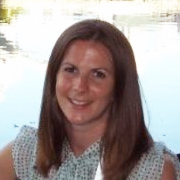Flexible working – A PIs perspective

During the last two years, many of us have experienced flexible or part-time working, or even taken career breaks, for the first time. In this series of posts, we explore experiences of part-time or flexible working and career breaks from the perspectives of a PI, Post-Doc and PhD candidate. First, we speak to Dr Sarah Jones, Senior Lecturer at Manchester Metropolitan University. If you would like to share your experiences of part-time or flexible working, or career breaks please get in touch.
Have you switched to part-time or flexible working, or taken a career break?
Over the past 5 year I have had two career breaks for maternity leave. I took 10 months off with my first child (2016), then used annual leave to return on a part-time basis, returning full-time after 15 months. I then took 12 months off with my second child (2020) and returned to work full-time in March 2021.
What did you find most challenging?
Definitely work life balance (together with lack of sleep). In my role as Senior Lecturer and Deputy Programme Leader for a large undergraduate BSc programme, I have a considerable amount of teaching responsibilities, which I have to balance with my research. Prior to having children, I did not realise how much time outside of normal working hours, I actually spent working. It was only when I could no longer stay at work late or work weekends that it really hit home. I also struggled with ‘mum guilt’ particularly with my first child and tried to avoid using childcare where possible. This was a disaster. I felt like I was doing a terrible job at work and a terrible job as a mum. Trying to work while looking after a small child is a nightmare (as many people will know thanks to coronavirus). It is hard to get anything done, particularly tasks which require concentration, and you end up getting stressed and cross at the child (followed by more guilt). I learnt from this and put my second child in childcare full-time as soon as I went back to work, meaning I could focus on work during worktime and ensure time with the children was quality time, without work distractions.
Another challenge of parental leave is ensuring that the lab continues to function in your absence and that Postdocs and PhD students had sufficient support. During my first career break, this was particularly challenging, given that there was no one else with platelet expertise at my institution. Thankfully, the Thrombosis Group had expanded by the time I had my second child and I had colleagues that I could rely on to support my students. Lab meetings had also all moved online due to COVID19, so I was able to join from home, allowing me to touch base with everyone on a weekly basis.
Do you feel your work life balance has been improved?
Work life balance remains a challenge, however I have taken positive steps to try and address this. The biggest change has come from me accepting the reality that in the short term, I cannot work the same hours I did prior to having children. On the back of this I am learning to work more efficiently and importantly to say ‘no’ to things. If you are a ‘yes’ person, you tend to get asked more often because people know you will say ‘yes’. This means you can get overloaded with tasks and responsibilities that are not beneficial to you. When time is limited, saying ‘yes’ to something is essentially saying ‘no’ to something else (spending time with your family), so I am now more selective.
Do you have any advice for ECR members considering a switch to part-time or flexible working, or a career break?
My advice regarding parental leave:
- There is never a right time (career wise) to have a baby….. unfortunately there is a biological window…….don’t keep putting it off until the stars align.
- You will never regret your career progression being delayed by a few years, but you will regret missing your children growing up, ensuring a good work life balance is crucial for long term happiness.
- Be well informed about the support available within your institution and beyond. Financially there are grants available to support research, but also to cover childcare costs to enable conference attendance for example. Support in terms of flexible working is also very important and can significantly help in achieving a good work life balance.
Are there any grants you’ve applied for to support flexible working/returning after a career break?
There are a number of research grants aimed at supporting researchers following a career break, however as far as I am aware most require a minimum of a 2-year break. I am also not eligible for most of the schemes as I am lucky enough to hold a permanent academic position. In terms of flexible working, I don’t have any grants to support this but my institution is very supportive, which enables me to balance family duties around work commitments.
If you would like to share your experiences of part-time or flexible working, or career breaks please get in touch.
